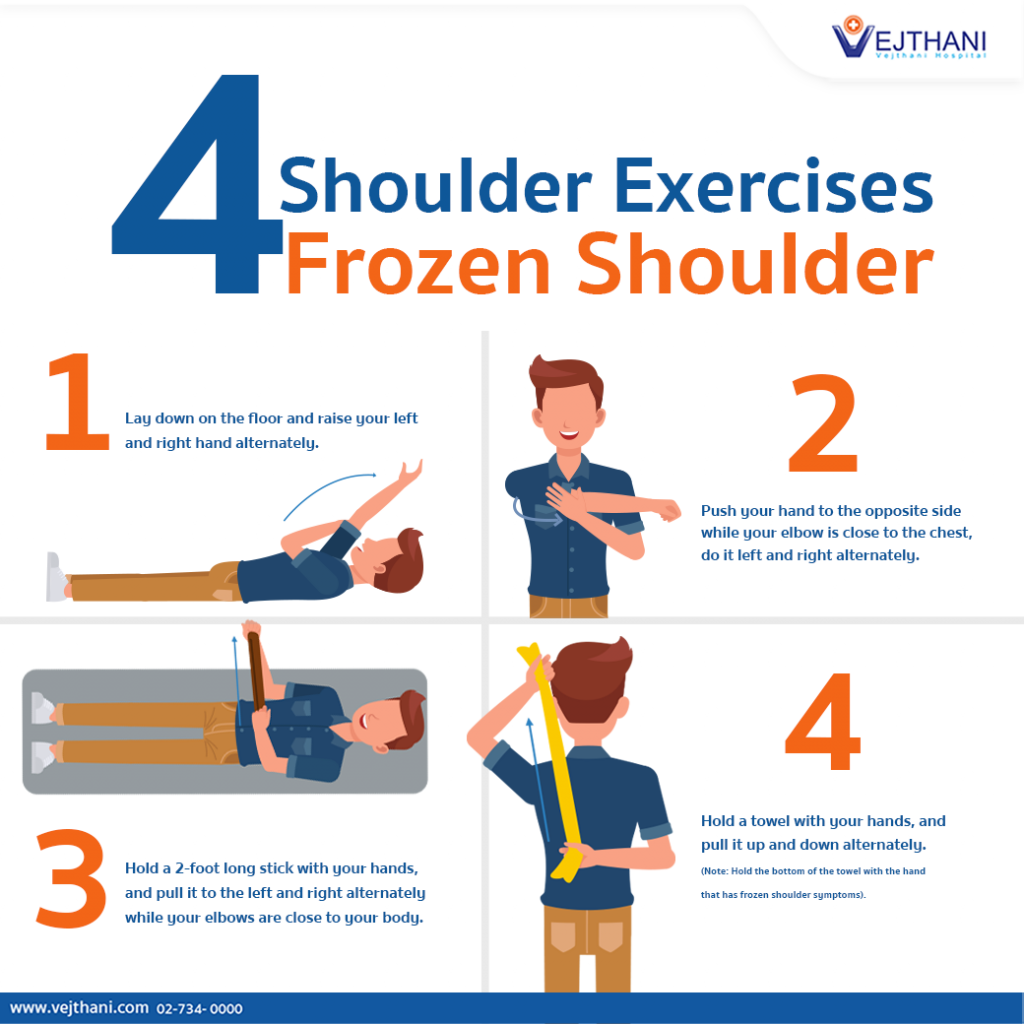Plantar Fasciitis Explained: Causes, Symptoms, And Recovery
Learn what plantar fasciitis is, its causes, symptoms, and the best treatment options available at Vejthani International Hospital in Bangkok.

Frozen shoulder, also known as Adhesive capsulitis occurs when a gap between the two moving surfaces of the shoulder is restricted. It is caused when the capsule and the synovial layer in the shoulder is thicker and becomes a fascia around the shoulder, thus the patient cannot raise their hand or move their shoulder freely. Frozen shoulder usually occurs in women aged over 40 years old, people who underwent the shoulder surgery or underuse the shoulder; and people who like to wear a backpack. Moreover, the patients who have Thyroid disease, Diabetes, Parkinson’s, Heart and Coronary diseases are at more risk of having frozen shoulder than other people because these mentioned diseases usually cause arthritis.
Orthopedics Center, 2nd Floor, King of Bones Building, Vejthani Hospital
Call +66 (0) 2734-0000 ext. 2298,2299
+66(0)85-223-8888 (English Hotline)